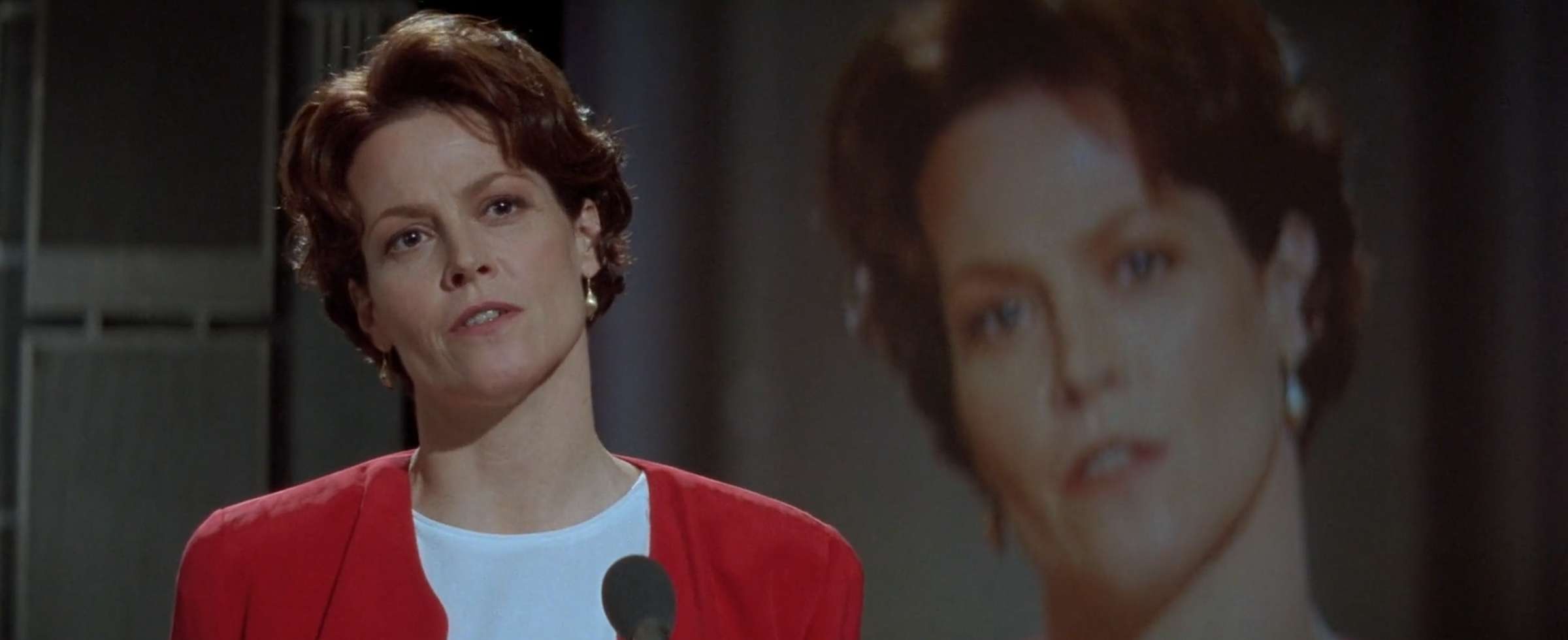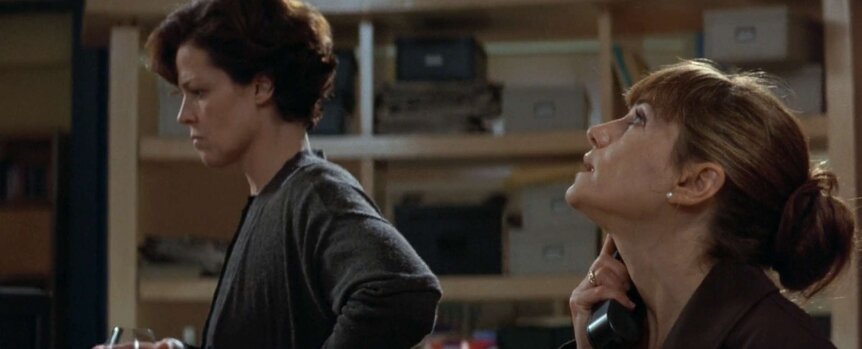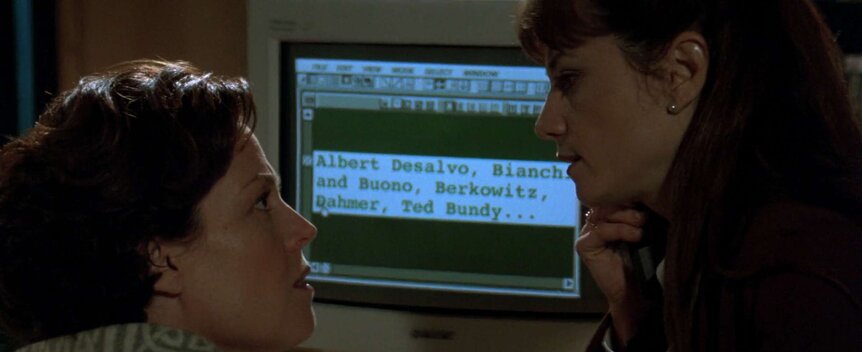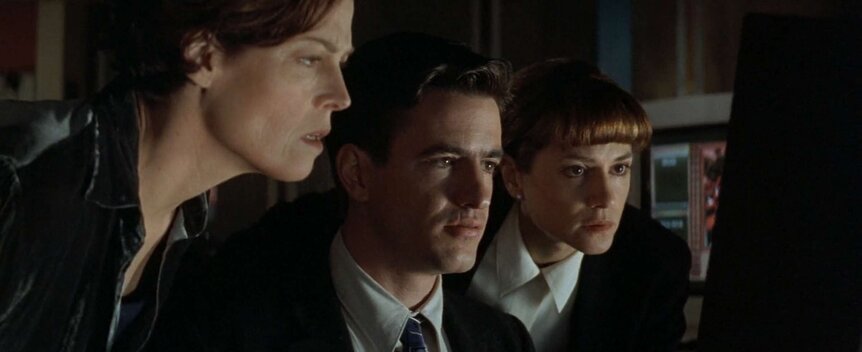Create a free profile to get unlimited access to exclusive videos, sweepstakes, and more!
Deep Cuts: Copycat (1995)

The world of horror is vast. With so many films across the spectrum of budget, studio involvement, quality, availability, and, above all else, pure scare-the-living-s***-out-of-you-ness, it helps to have trained professionals parse through some of the older and/or lesser-known offerings. That's where Team FANGRRLS comes in with Deep Cuts, our series dedicated to bringing the hidden gems of horror out of the vault and into your nightmares. This week we're looking at underrated serial killer thriller Copycat.
1995 was a truly influential year for cinema, giving us such dissimilar classics as Babe, Se7en, Dead Presidents, Toy Story, and the Power Rangers movie, just to name a few. With the list of beloved classics that debuted that year, it's not too surprising that a few greats fell by the wayside. One of those lesser-known movies is Copycat.
Despite sporting a stellar cast and a unique take on an old trope, Copycat rarely comes up in conversations around great serial killer films. Yet, the compelling female leads and social commentary alone are enough to warrant a revisit in the modern age. In short, this is the kind of hidden gem we live for around these parts.
Copycat opens on a woman, Dr. Helen Hudson (Sigourney Weaver), speaking to a full auditorium about her work as a researcher of serial killers — only to be attacked by one in the bathroom after her show (a surprisingly effective Harry Connick Jr. in the role of Daryll Lee Cullum). She barely escapes with her life and the man who tried to kill her goes to prison, but he scores a major book deal and continues to taunt her from his cell. Hudson notices similarities in a new series of murders and insists to the police that there is a copycat killer on the loose. Because she is still reeling from trauma and experiencing extreme agoraphobia, the police department ignores her and goes a step further by ignoring the detective who believes her, Inspector Monahan (Holly Hunter). Monahan approaches Hudson to help them with their case, and Hudson reluctantly agrees as they find themselves again the target of a new killer's theatrical, attention-seeking crimes.
Copycat has only become more relevant as serial killer idolization continues in full force and victims struggle to receive any fraction of the attention that the perpetrators get from police, press, artists, and society at large. There is more of a conversation around this today, but Copycat successfully trains the focus on Hudson and her experience rather than lingering on its killers. By tying in several then-current cultural references, it shows the way that these criminals so often crave and thrive on celebrity, any victims becoming nothing more than the means to an end for both the press and they themselves. By putting the spotlight on Hudson, we get a reality check on what it truly means to barely escape a brutal attack with your life, and how little the outside world cares when it happens.
It goes without saying that one of the great highlights of this film is in watching Sigourney Weaver and Holly Hunter act their socks off. The incredible dynamic between the curious, off-beat inspector and the isolated, emotional field expert is a major draw all on its own. While the other characters fit solidly into genre tropes of "grizzled commissioner," "handsome rookie," and "jaded cop," Dr. Hudson and Inspector Monahan are unique. Their interactions with one another are fascinating in part because they're so minimal, two bright stars that the rest of the story orbits around. When they do speak to one another, one honest and patient, the other afraid and traumatized, the film achieves it's most compelling moments.
Both Hudson and Monahan are constantly condescended to by the men around them, with the exceptions of the dopey young detective and also Hudson's gay caretaker and friend. Hudson grows increasingly insistent and upset as the police and the serial killers alike attempt to undermine and gaslight her. In all realms, her trauma is used as a tool against her. Despite years of study, recognition as an expert in her field, and hands-on experience as the near-victim of a serial killer, she becomes a laughingstock when she attempts to draw police attention to her theory of a copycat.
Meanwhile, Monahan is calm and steady, but she is shaken by events just as Hudson is. Her kind, open way of addressing people becomes a deterrent when the unwanted attentions of her coworker stand in the way of her getting her work done. Again, despite her expertise, she is patronized and treated like a child by many of her fellow cops. It's no small wonder then that she is willing to listen to Hudson when no one else is. Despite the surface-level animosity between them, Monahan quickly recognizes their mutual plight. Throughout the course of the story, Hudson learns to understand it, as well.
Trauma is a complicated, long-lasting thing that undergoes many cycles throughout a person's life, and genre stories often struggle to reconcile with its presence. In horror, we so often see incidents of violence, but so seldom do we witness what happens after. The victims become nothing more than a footnote, and the survivors are hailed for their wise choices without much look at what happens to them after the credits roll. While there are some instances of characters experiencing enduring trauma (such as the Scream sequels, 2018's Halloween, and When a Stranger Calls Back), stories tend to focus more on triumph than on the nuanced, long-term effects.
In the end, no conclusions are drawn. The "good guys" win, but there is a lingering sense of pain and regret in the air that is guaranteed to change the central characters' lives forever. This adds a surprising level of maturity to what could easily be a sensationalized tale of celebrity and serial killers. It's precisely this lack of closure that makes Copycat the haunting, enduring classic that it is. It shows us the very real and lasting pain that Sigourney Weaver's Hudson experiences after her attack while emphasizing the importance of believing survivors, and that alone should rate it as one of the top thrillers of the '90s, if not all time.





























